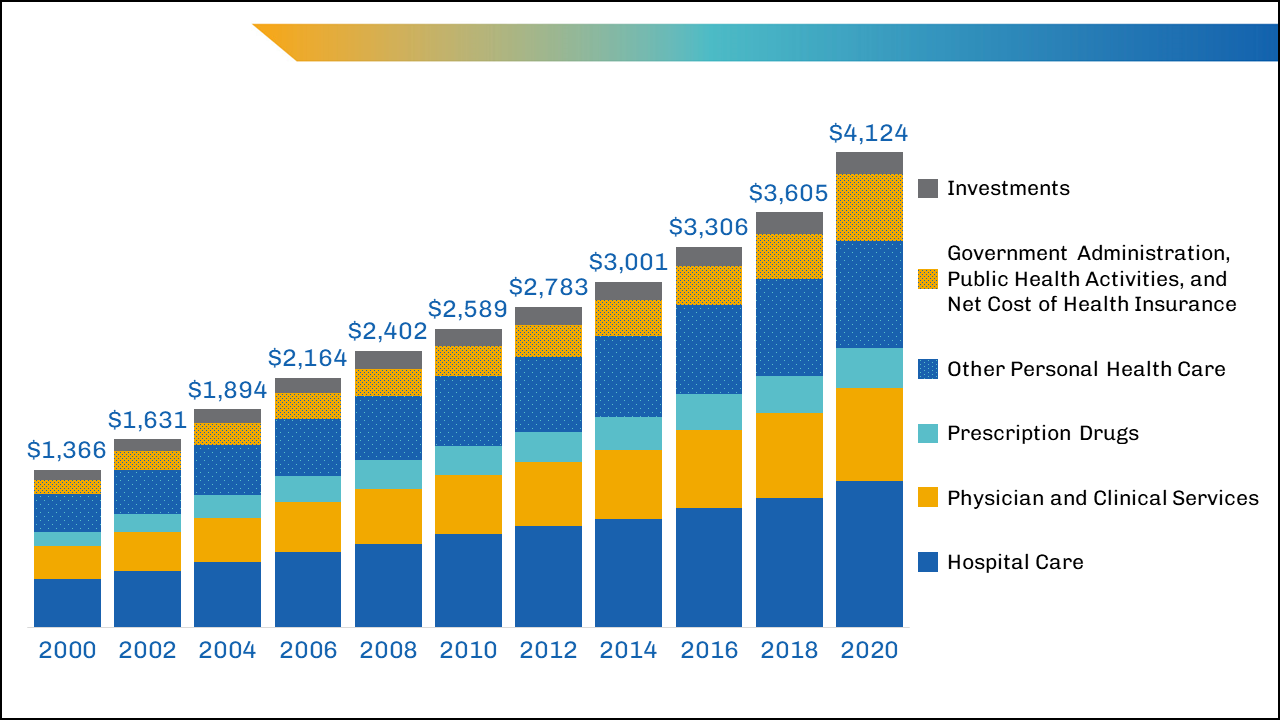Healthcare RCM Tools to Maximize Revenue and Minimize Denials
Healthcare RCM Tools to Maximize Revenue and Minimize Denials
Blog Article
Recognizing the Duty of Medical Care RCM in Enhancing Economic Performance and Individual Complete Satisfaction
Navigating the intricacies of Health care Revenue Cycle Monitoring (RCM) is vital for attaining ideal economic performance while concurrently elevating person contentment. As we check out the transformative potential of RCM, inquiries about its critical implementation and future advancements bid, promising insights that can redefine market requirements and person experiences alike.

Secret Components of RCM
In the complicated landscape of healthcare, Revenue Cycle Management (RCM) is crucial in making certain monetary security and functional performance. A detailed RCM system incorporates numerous critical parts, each playing a crucial function in the seamless monitoring of a doctor's monetary processes. Person registration and qualification confirmation are foundational actions, making sure that precise individual details is caught and insurance protection is validated prior to solutions are made. This decreases the threat of claim rejections and accelerates the compensation process.

Charge capture is another important component, involving the exact recording of services offered to clients. It makes sure that all billable services are represented, therefore making the most of income capacity. Concurrently, clinical coding translates patient encounters into standard codes, which are important for payment and regulatory conformity.
Cases entry and management follow, entailing the preparation and entry of cases to payers. This process requires careful interest to detail to decrease errors and protect against hold-ups. Rejection management is a proactive method to attend to and solve refuted insurance claims, safeguarding profits streams.
Last but not least, settlement uploading and individual collections finish the cycle, guaranteeing repayments are precisely videotaped and exceptional balances are sought. Together, these elements develop a durable framework that supports the monetary and functional health of healthcare companies.
Influence On Financial Efficiency
Effective Revenue Cycle Administration (RCM) considerably influences a medical care organization's monetary performance by optimizing capital and lowering profits leakage. RCM incorporates the extensive invoicing and collection processes that make certain healthcare suppliers successfully handle their monetary deals from person registration to last repayment. By streamlining these procedures, organizations can decrease refuted cases, speed up settlement cycles, and improve general economic wellness.
Economic efficiency is enhanced with meticulous administration of payment procedures, which entails precise coding and timely entry of cases. This minimizes the probability of claim rejections and rejections, which can significantly hinder revenue flow if not attended to quickly. Furthermore, integrating advanced innovation options helps with real-time tracking of cases and financial metrics, supplying health care administrators with the tools required to make educated strategic decisions.

Enhancing Patient Satisfaction
While enhancing financial performance is a key objective of Income Cycle Management (RCM), it additionally plays a critical duty in improving client contentment. By minimizing administrative burdens, RCM allows healthcare companies to concentrate much more on person treatment, which straight boosts client fulfillment.

RCM also boosts client complete satisfaction via reliable communication. By maintaining a comprehensive data source of person information, RCM facilitates enhanced interaction between people and health care companies, making certain patients feel informed and valued.
Methods for Effective RCM
Attaining efficient Profits Cycle Administration (RCM) requires health care organizations to apply a collection of strategic practices that ensure financial stability and operational performance. One crucial strategy is the fostering of technology-driven options, such as incorporated software systems that streamline billing procedures, minimize mistakes, and enhance data precision. These systems allow real-time tracking of monetary metrics, permitting punctual identification and rectification of inadequacies.
One more technique is the standardization of processes across the profits cycle. Healthcare RCM. This includes creating constant policies for individual registration, insurance confirmation, and asserts processing. By making certain that all team abide by these requirements, companies can decrease disparities and speed up payment collections
Staff training and development also play a pivotal function in reliable RCM. Trained workers can effectively browse complex billing treatments and laws, minimizing rejections and enhancing cash money circulation. Regular updates on policy adjustments and finest methods aid maintain a competent and knowledgeable workforce.
Future Trends in RCM
As medical care companies boost their Earnings Cycle Administration (RCM) approaches with modern technology and standardized processes, interest is now turning in the direction of the future trends shaping this crucial area. One substantial fad is the integration of expert system (AI) and maker discovering to automate complex jobs, such as insurance claims processing and anticipating analytics. These innovations are expected to reduce mistakes, accelerate purchase times, and provide data-driven insights for much better decision-making.
Additionally, the change towards value-based treatment continues to influence go to this site RCM practices - Healthcare RCM. Health care service providers are expected to progressively focus on client end results and satisfaction, requiring RCM systems that can fit new reimbursement designs. This change will certainly need even more thorough data collection and evaluation to efficiently report and determine on performance metrics
Interoperability is one more emerging priority, as smooth information exchange in between disparate systems becomes critical. Boosted interoperability will promote more accurate individual details sharing, lowering administrative concerns and improving the client experience.
Conclusion
Health Care Profits Cycle Monitoring (RCM) substantially influences both financial performance and person complete satisfaction by maximizing invoicing procedures, guaranteeing exact coding, and making it possible for prompt claims submission. Effective RCM reduces income leakage and accelerates money flow, decreasing insurance claim rejections and accelerating payments.
Browsing the details of Medical care Profits Cycle Management (RCM) is necessary for attaining ideal financial performance while all at once raising individual contentment. RCM encompasses the detailed invoicing and collection processes that guarantee medical care service providers efficiently manage their monetary purchases from patient registration to final repayment. By lowering administrative worries, RCM permits healthcare carriers to concentrate much more on person treatment, which directly boosts person satisfaction.
By maintaining a detailed database of client details, RCM facilitates enhanced communication between people and healthcare suppliers, making certain patients really feel notified and valued.Health Care Profits Cycle Monitoring (RCM) considerably influences both economic performance and person satisfaction by optimizing invoicing procedures, making certain exact coding, and making site link it possible for prompt cases submission.
Report this page